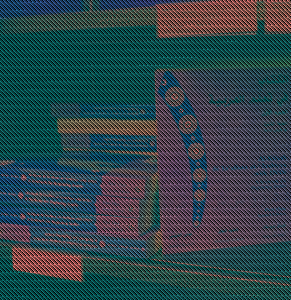
Image Contributor
.Al-Kitaab,. co-authored by a Georgetown professor, has been accused of containing pro-Arab propaganda.
An Arabic textbook authored by a Georgetown professor, published by the Georgetown University Press and used widely on campus and throughout the United States has come under fire in recent weeks for allegedly containing anti-Western and anti-Israeli undertones.
Both the university press and the chair of the Georgetown Arabic department, however, have publicly stood behind the work.
On Aug. 6, Joel Pollak, a third-year student at Harvard Law School, published an Op-Ed piece in the Washington Post criticizing the textbook “Al-Kitaab,” which is co-authored by Georgetown University Arabic professor Abbas Al-Tonsi.
“Most maps of the Middle East in `Al-Kitaab’ do not include Israel, though a substantial minority of Israelis, both Jews and Arabs, are native Arabic speakers,” Pollak said in his article.
Pollak specifically objected to a map on page 389 that shows the post-World War II Middle East and labels Palestine without labeling Israel, as well as a map of the region on page 13 that fails to include the West Bank or Gaza as part of Israel.
In addition, Pollak cited examples of what he saw as a biased view of the Israeli-Palestinian conflict in the book.
The book underwent extensive formal evaluations at Georgetown and reviewed at various universities including Georgetown, Harvard, Princeton, Stanford and Yale, according to Gail Grella, associate director and acquisitions editor for languages and linguistics at the Georgetown University Press. She said that “Al-Kitaab” was created through a federal grant out of the National Endowment for the Humanities and that it had gone through a formal evaluation by the Georgetown Arabic department among other reviews before going to press. An NEH official reported that, according to procedure, the NEH did not review the text for sources of bias, according to the Washington Jewish Weekly.
Grella said that “Al-Kitaab” is a respectable text: the first edition of “Al-Kitaab” was published in 1995 and was used by half of American Arabic classes in the first semester in which it was published, while today, she said it is the most widely used Arabic textbook in the country.
“By the sheer fact of how it’s been embraced by the language teaching community, I think it’s clear that it’s a high quality textbook,” she said.
“Our authors are very careful not to politicize their books when writing. A very important part of language texts is culture, and there are elements of any culture that people will disagree with,” Grella added.
Professor Ahmad Dallal, chair of the university’s Arabic department, also defended the book’s academic standing.
“I can’t possibly imagine what anyone would object to in this book,” he said. “It is not a book about politics, and from the perspective of language pedagogy – it is by far the best book in the field,” he said.
Dallal added that he had never received complaints about it from students or faculty at Georgetown, although Richard Brown, director of GUP, reported to the WJW that he has received some objections from students in regard to their maps.
Al-Tonsi, co-author of the textbook, is currently teaching at the School of Foreign Service in Qatar and was unavailable for comment.
“







